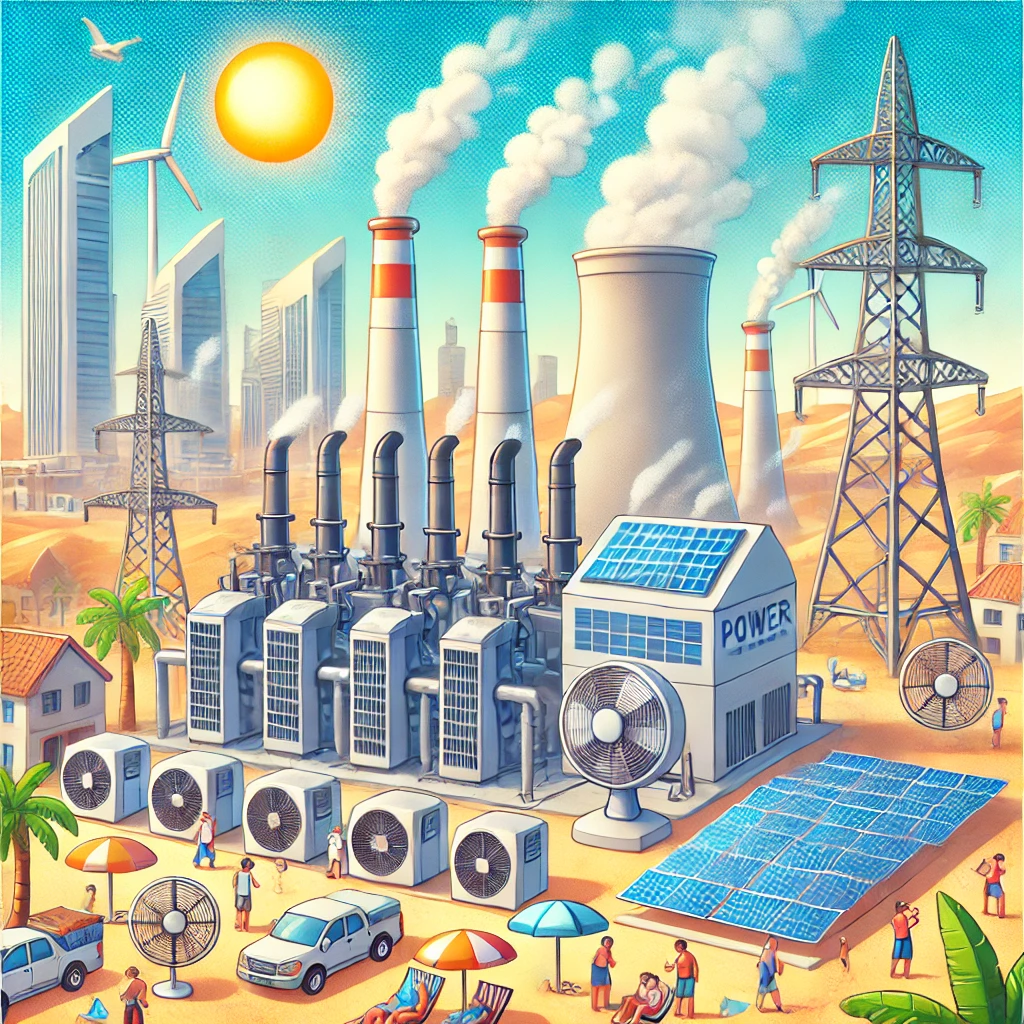This summer, the Middle East is experiencing record heat, which is straining energy supplies. Countries like Egypt and Iraq are facing power cuts, while others like Kuwait and the UAE are working to meet high electricity demands. The UAE is focusing on adding more solar power and upgrading old plants to handle the increasing need for energy, aiming to balance growth with environmental goals.
The intense heat is causing more people to use air conditioners, which increases the demand for electricity. In Egypt, residents face regular power cuts as the country struggles to provide enough energy. Iraq also experiences blackouts, making life difficult for many people. Both countries are looking for ways to improve their power supply and reduce outages.
Kuwait is investing in new power plants and renewable energy sources to meet the growing need for electricity. The government is encouraging people to use energy wisely to avoid shortages. Similarly, the UAE is upgrading its power infrastructure, adding more solar panels, and improving energy efficiency. This approach helps reduce the environmental impact of energy production.
Experts say that relying more on renewable energy can help the Middle East manage its energy needs better. Solar power, in particular, is a good option because the region gets a lot of sunlight. By investing in renewable energy, countries can ensure a more stable power supply even during the hottest months.
You can read the original content here.
By The National News. Original content published by thenationalnews.com.
